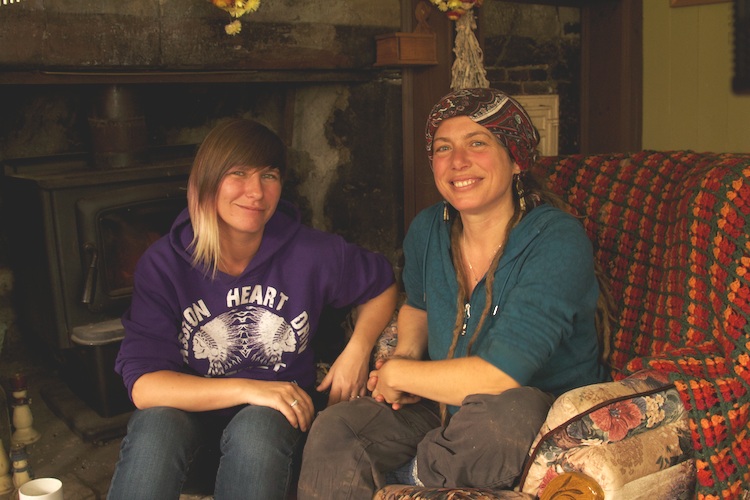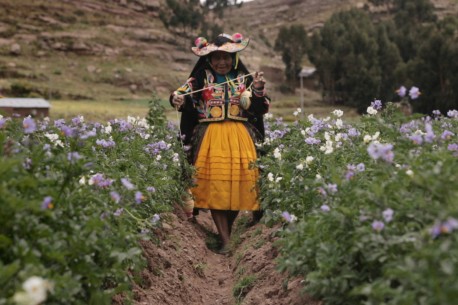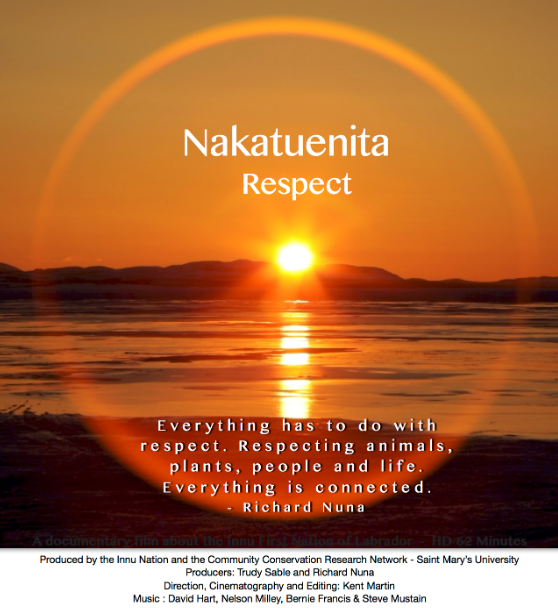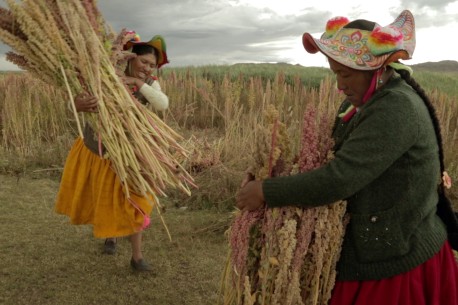



How are Muslim filmmakers reconstructing the Muslim identity as it appears in film and television? In what ways are food and land protection sacred in Indigenous cultures? What do film superheroes say about masculinity and religion? How is contemporary culture reflected in the popular wave of apocalypse films?
These are just a few of the questions to be explored from June 12 to 14, when scholars of film and religious studies will connect at Saint Mary’s University for film screenings and research presentations. It’s the first time Nova Scotia is hosting the International Conference on Religion & Film (ICRF), co-sponsored by SMU and the Journal of Religion and Film, based at the University of Nebraska Omaha. Professors, filmmakers and graduate students will attend from across Canada and the U.S., and as far away as India, Turkey and the Netherlands.
“This year in particular, one of the themes for the conference will focus on Indigenous cultures,” says s Dr. Syed Adnan Hussain, one of the event’s organizers and an Assistant Professor with the SMU Department of Religious Studies. “It’s in keeping with the University’s commitment to continue these conversations. Those conversations are not necessarily about reaching conclusions, sometimes it’s just about coming together and sharing stories. Film is one of the most potent mediums for that.”
The public is invited to join the conversation – on Friday, June 14, the conference will host free public film screenings in the Halifax Central Library’s Paul O’Regan Hall:
· 3:00 pm – Wi’kupaltimk (Feast of Forgiveness), 46 minutes
· 5:00 pm – Sembradoras de Vida (Mothers of the Land), 1 hour 14 minutes
· 6:00 pm – Nakatuenita (Respect), 1 hour 2 minutes
Wi’kupaltimk is a documentary by Salina Kemp, a master’s student in the Atlantic Canada Studies graduate program, and Mi’kmaw from the Millbrook First Nation. With co-director Kent Martin, she explores the issue of food security as it affects urban Indigenous Peoples living in Kjipuktuk (Halifax), both historically and in the present. Her film celebrates the resilience of the Mi’kmaw, the rich resources available prior to colonization, the medicines and wild foods still available, and the sacredness of that food. Food security themes continue in Sembradoras de Vida, by Peruvian directors Álvaro & Diego Sarmiento. It follows five women from the Andean highlands in their daily efforts to maintain a traditional and organic way of working – and protecting – the land.
A documentary about the resilience of the Innu First Nation of Labrador, Nakatuenita was a coproduction of the Innu Nation and the SMU-based Community Conservation Research Network (CCRN). Directed by Mr. Martin, it was produced by Dr. Trudy Sable of SMU and Richard Nuna. Following the screenings, Dr. Hussain will host a panel conversation with filmmakers including Kemp, Dr. Sable, Martin, Bernie Francis and Roger Lewis.
Also during the conference, local and visiting scholars will present and discuss 29 research papers on a variety of fascinating film and religion topics. See the conference website to register, and for the complete schedule of sessions and presenters.

